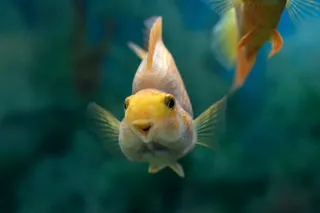Last April Italian and Danish deep-sea researchers described multicellular animals that conduct their entire lives without respiring oxygen. The crew found the three new species of Loricifera (jellyfish-like animals less than a millimeter long) in the sediment of L’Atalante Basin, a zone of salty, oxygen-depleted water at the bottom of the Mediterranean. When Antonio Pusceddu of the Marche Polytechnic University in Italy and his colleagues found the Loricifera, they assumed the animals had fallen to the seafloor after dying. “We thought it was impossible that they could live there,” Pusceddu says, but tests conducted on two subsequent expeditions indicated that the specimens were alive.
The Loricifera have unique adaptations to an oxygen-free environment. Instead of mitochondria (the cellular engines that convert oxygen to energy, present in all other known animal cells), these creatures contain structures resembling hydrogenosomes, the organelles that anaerobic microbes use to generate energy. The finding raises the possibility that complex animal life could exist in all kinds of harsh, oxygen-free environments—on Earth and perhaps on other worlds, too.














